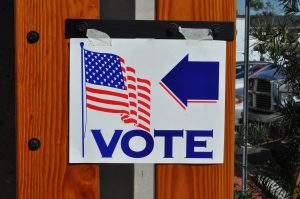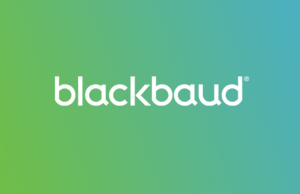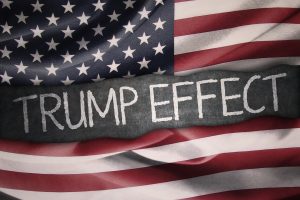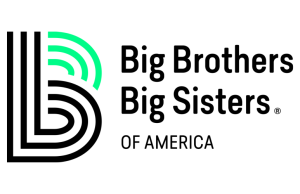Philadelphia, Pa., will be among the country’s most-watched locales during tomorrow’s presidential election, with the southeastern portion of blue-tinted Pennsylvania seen as a key battleground for the state’s 20 electoral votes.
The attention isn’t lost on leaders of the Committee of Seventy, a Philadelphia-based civic organization. “I would say that it heightens the focus of our staff and our volunteers and other folks in election protection,” said Patrick Christmas, policy program manager. “The spotlight is on the state and southeastern Pennsylvania and that means the stakes are that much higher for every vote.”
The wide-spread anxiety from supporters of both the left and right regarding voter issues such as intimidation, suppression and fraud makes this election stand out from predecessors, Christmas said. “Just the presence of those concerns is a real problem, and I think the damage from all this angst will stay with us for a while,” he said.
The city’s district attorney’s office, individual campaigns and organizations such as the Lawyers’ Committee for Civil Rights Under Law will be on the front lines in protecting voters’ rights on Tuesday, according to Christmas. The Committee of Seventy will have staff and volunteers fielding calls throughout the day and inputting results into a call-reporting system. The committee will also be using Tuesday as a jumping-off point for the future.
A voter experience survey will be open through Friday to gather reports of improper voter identification requests and illegal electioneering in an effort to tease out systemic issues. About 300 Philadelphia-area high school students will also volunteer at polling sites to answer questions and conduct exit surveys.
“That’ll be a larger part of our portfolio in our future,” Christmas said. “Civic discourse.”
Organizations large and small will be active throughout the country tomorrow in an effort to encourage and protect voters. That work will prove more challenging than elections past, according to those on the ground, as some statutory protections are no longer in place and civil unrest threatens to attempt to sway outcomes.
The American Civil Liberties Union (ACLU) will be using affiliates across the country to help safe-guard polling locations, according to Sean Young, senior staff attorney for the ACLU Voting Rights Project. ACLU’s work commonly includes working on the ground in partnership with other organizations and placing volunteers at polling locations to look for irregularities, intimidation and individuals being turned away.
Reaching out to local election officials solves issues the vast majority of the time, though ACLU attorneys are prepared to litigate if necessary. Litigation is avoided when possible given the sensitivity and timeliness of voting issues, but there are court procedures that allow for emergency relief in the form of temporary restraining orders which, if granted, can help insure that a particular voter’s ballot is counted, according to Young. ACLU national attorneys will be stationed in Florida, North Carolina, Pennsylvania and Wisconsin, Young said from Wisconsin.
Dozens of Wisconsin voters were disenfranchised during the primaries due to a new voter identification law that the ACLU will be watchful of tomorrow, Young explained. In Pennsylvania, there have been reports of possible voter intimidation in minority areas. While a voter identification law was struck down in North Carolina, the ACLU is making sure that voters know that no such law is in place and “Florida, it’s Florida,” said Young.
Tuesday will be the first election since the U.S. Supreme Court’s Shelby County v. Holder decision, Young noted. The decision enables discriminatory election measures without notice, he added, “That has made us particularly vigilant.”
The National Association for the Advancement of Colored People (NAACP) will, too, disperse a wide number of attorneys in an effort to protect the vote. Cornell William Brooks, president, said that hundreds of attorneys will be keeping eyes on some 6,000 precincts that the NAACP believes could be targets for suppression.
Some 17 states, including North Carolina, Michigan, Ohio and Pennsylvania, are of particular focus, Brooks said. NAACP’s Baltimore headquarters will serve as a national command center with desks dedicated to handling issues for each of the 17 states. Voter intimidation has already been on issue with early voting, with a man in Loudon County, Va., recently showing up to a polling location with a handgun, badgering voters about who they were voting for, Brooks said. “We are treating this like a military operation in which the opposition is not a foreign ‘they,’ but a domestic ‘us,’” he said.
This election provides many unique challenges not seen in recent years, Brooks said. This will be the first election in decades without the full protection of the Voting Rights Act of 1965, which was stripped down by Shelby County v. Holder. There are also instances of candidates supporting voter suppression measures and citizenry traveling out of their own communities to monitor polls. “We can’t be naïve,” Brooks said. “This election takes place in a cauldron of xenophobia, misogyny, anti-Semitism and economic anxiety,” he said. “All of which has left an electorate that is over-heated, on edge and for good reason.”
Much of the NAACP’s efforts leading up to Election Day have been educational. Efforts have been made to counter misinformation circulating that individuals cannot vote if they have overdue parking tickets, library fines or are on line when the polls close. Partnerships have been created with more than 100 organizations including National Head Start, sororities, fraternities, Elks lodges and religious congregations to encourage voting.
The NAACP has also had state conference presidents write to officials regarding malfunctioning voting machines, convened a voter protection coalition last month and engaged in social media advocacy – an effort that started last summer during the organization’s march from Selma, Ala. The march included teach-ins both in person and online that were attended by 5 million individuals, many of them young people.
Brooks advocated that whomever is elected president should address voter protection within the first 100 days of being in office. “Vote No. 1 should be the Voting Rights Act, nothing else is more important,” Brooks said. “We can’t talk about equalizing economic recovery, immigration reform, environmental justice or education without talking about the franchise.”
Making sure parents are available to vote is another priority. The YMCA of the USA (Y-USA) announced last month that Y’s across the country will participate in Zoe’s Kids Day Out, an initiative to give children a safe place to play while their parents get out to the polls. The program is part of Y-USA’s larger Zoe for President initiative, an effort to elect a one-year girl as president in 2064.
Services and costs for the day out will vary from community to community, according to a release and contact information can be found at YMCA.net.
“Election Day is arguably one of the most important days in the U.S. this year — the ultimate opportunity for Americans to make their voices heard through the democratic process,” said Kevin Washington, president and CEO. “Unfortunately, many people who want to vote find it challenging because they have to take children with them. The Y’s hope is that Zoe’s Kids Day Out initiative enables those parents and caregivers to exercise their right to vote, and ensures children can spend their time in a safe, nurturing environment.”











